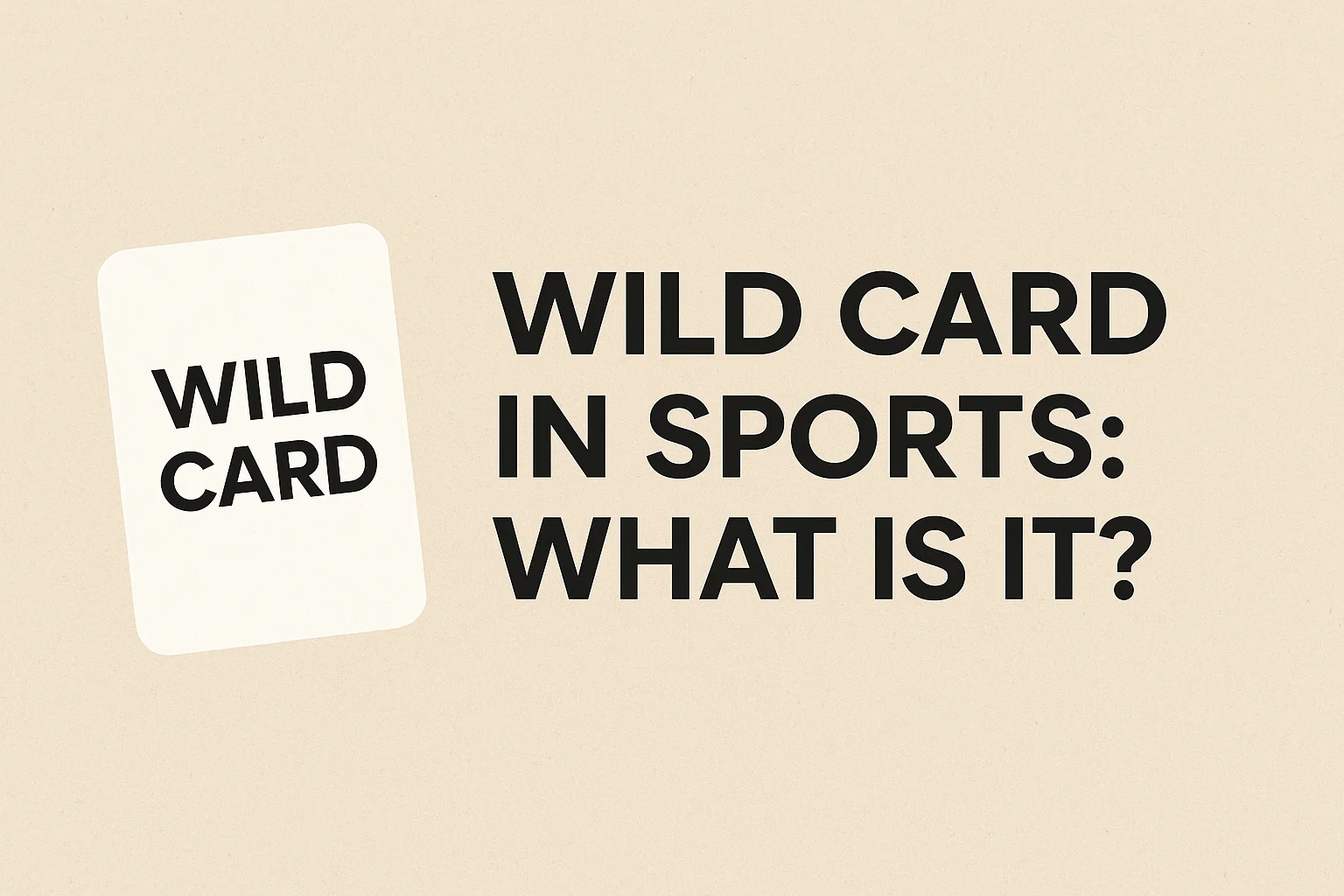Wild Card in Sports: What Is It?

A wild card is one of the options given to teams or players. In fact, the term is merely "wild card." It can be found in some sports such as hockey, tennis, basketball, and even esports competitions. To those who enjoy watching competitions and betting with statistics as well, websites such as UsOnlineCasinos.biz often explain how wild cards function in competitions and the probabilities of players.
What Is "Wild Card"?
It is quite simple to comprehend what a wild card is in basketball or any sporting event. It is a special invitation extended to a team or player to participate in a tournament. The invitation can be extended after the process of qualification (if the team did not qualify automatically) or even before the competition begins. For example, in the FIFA World Cup, the host nation gets automatic qualification rights with no extra qualifiers.
The name wild cards is used best to depict their nature. Invitations are discretionary with the organizers keeping in mind things such as:
- popularity of the team;
- past performance;
- interest in some players;
- contribution to the development of the sport in their country.
Practically, wild cards are given for virtually any reason. There is no established system, and the organizers can select on different motivations. Sometimes invitations are given to "veterans" of the sport — individuals with enormous followings. In tennis, for instance, Andy Murray, Juan Martín del Potro, and Kei Nishikori have all been given wild cards following recoveries from serious injuries.
High Motivation for Players
Those sporting fans mistakenly presume the wild card entrants are doomed to lose since they could not qualify via the initial selection. It is likely at first glance to appear that way, yet there is one vital factor to keep in mind: motivation.
Wild card participants view the invitation as an opportunity of a lifetime and go all out. They play very hard, commit no mistakes, and deliver excellent inspired performances. In most cases, such individuals or teams reach the prize rounds or leave a lasting impression through their determination and prowess.
Examples of Wild Cards in Sports
Wildcard is used in all games, even volleyball. There are times when organizers invite non-qualifying teams, presuming their participation would liven up the tournament. These decisions have been justified when such teams ended up performing tremendously.
In tennis, Kim Clijsters had previously come back out on the professional circuit after a lengthy break and got a wild card since she had no ranking points. She went on to claim the tournament. Another famous example would be Goran Ivaniševi?, who had lost several Wimbledon finals previously but was given a wild card for his previous efforts and ended up winning the title.
Wild cards can completely change the story of a competition, making outsiders champions.
Wild Card in Esports
Esports also actively utilizes the wild card system. For example, Dota 2 tournaments utilized it as a feature to allow more teams to make it into The International. Invites were distributed across regions such as Southeast Asia, China, the Americas, and Europe.
The format was eventually adopted by CS:GO majors as well. One highly publicized event saw the wild card match attract a record audience, with hundreds of thousands watching as TyLoo played FaZe Clan.
In esports as well, wild cards have become a standard component of competition, usually bringing surprise drama and tension to the tournaments.








